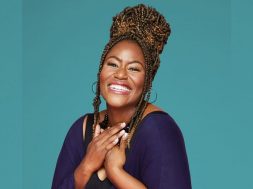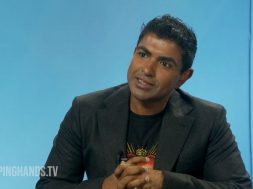
By: Steff Willis
In today’s competitive job market, understanding what potential employers are really looking for can be a challenging task.
What should you include in your resume? How transparent should you be in your interview? What are the common mistakes employers see as they try and find the right candidate for the role? What are employers really looking for in resumes and interviews?
Andrew Thonemann helps answer these questions as the CEO and Founder of Christian Jobs Australia with more than 25 years of experience in HR, Recruitment and online marketing. Along with recruiting in his own organisation, Andrew has a unique understanding of the employer’s perspective during the job-hunting process.
Research, Research and more Research
Whether it’s deciding on your career path, preparing your resume or getting ready for an interview, Andrew emphasised the importance of research.
“The depth of your research is really critical,” he said.
“We’ve seen many people who have come in for a job interview and, you know, halfway through the job interview they’ll say… ‘what do you do here?’ So it’s very important to know what you’re going into.
“There’s so many ways of researching these days through the internet, through social media… so there’s no excuse not to.”
Resumes vs Interviews
While the process of applying for a job can be overwhelming, Andrew encourages job seekers to simplify it by thinking of the resume as a place to show your credentials, skills and experience and to think of interview as a chance to show your personality, your presentation and likeability.
Andrew advises keeping your resume simple, 1-2 pages in length although this can vary depending on our experience and the type of role you’re applying for. He also recommends tailoring resumes to suit the specific job application.
“You need to respond and tailor your resume to that particular job” Andrew said.
“It’s important every time you apply for a job; don’t just bring out your old resume and shoot it off again.”
Once a job seeker’s resume has been accepted, the next step is the interview. Again, Andrew emphasized the importance of research, advising job seekers to learn about the company, who they will be interviewing with, and any recent events or developments involving the company. For Andrew, this level of preparation not only demonstrates interest but also a candidate’s commitment to the role.
However, Andrew warned against certain questions and behaviours that could be red flags for employers:
“They shouldn’t be asking about what’s in it for them specifically… That’s not going to help you get the job. They need to know what questions to ask, but also what questions to stay away from.”
Red flags for employees include inappropriate questions about age, religion, politics and questions about family.
Your Secret Weapon
Andrew encouraged job seekers that regardless of your skills or level of experience, showcasing a positive, enthusiastic personality could be the key that opens the door to your ideal job.
He also encouraged job seekers to pray before interviews and to even do some interview role playing with a friend or family member to get some real critical analysis of how they’re presenting themselves.
Article supplied with thanks to 96five.
Feature image: Photo by Christina @ wocintechchat.com on Unsplash













